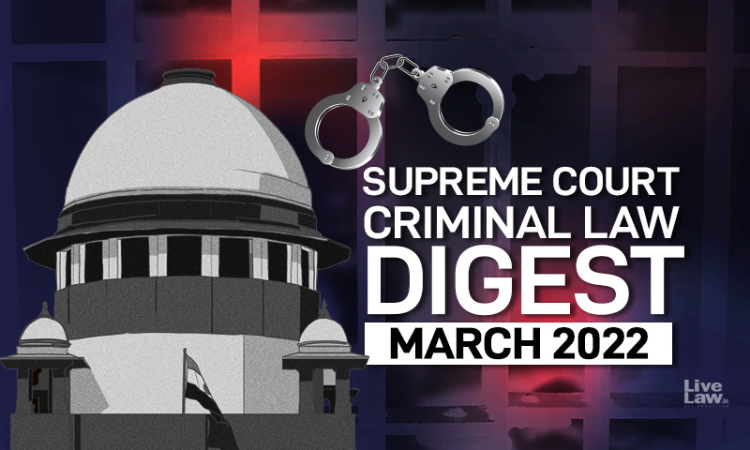Supreme Court Criminal Digest With Subject And Statute Wise Index- March 2022
LIVELAW NEWS NETWORK
5 April 2022 11:05 AM IST

Next Story
5 April 2022 11:05 AM IST
Anticipatory Bail - SLP Against Madras HC Judgment dismissing anticipatory bail with some observations about requirement of custodial interrogation- Dismissed - High Court, after having found no case for grant of pre-arrest bail, has otherwise not given any such direction of mandatory nature - Observations are essentially of the reasons assigned by the High Court in declining the prayer...
